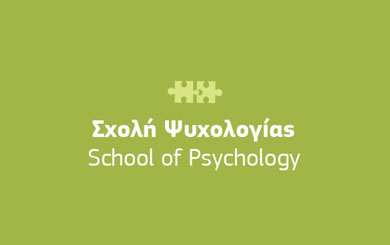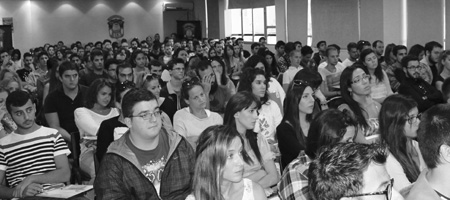

School of Psychology
- MSc Psychology of Addictions and Behavioural Change
- Professional Doctorate Counselling Psychology
- MSc Occupational Psychology
- MSc Forensic Psychology (with Psychotherapy)
- MSc Counselling and Psychology in Educational Settings
- MSc Applied Psychology: Health Psychology and Counselling
- MSc Applied Psychology: Clinical Psychology and Counselling
- MSc Integrative Counselling & Psychotherapy




Professional Doctorate Counselling Psychology
-
The College with the most experience in Psychology studies in Greece (1977).
-
Experienced teaching & research team – joint supervision by MC and UoW staff.
-
“Carl Rogers” in-house clinic, with observation, clinical practice, supervision & research opportunities.
-
Additional seminars, workshops, conference participation & study funding opportunities.

Course Information
The School of Psychology of Mediterranean College offers this Doctoral programme in Counselling Psychology, in collaboration with the University of Wolverhampton. The programme aims to thoroughly prepare mental health professionals for professional practice through the development of a high-level applied theoretical and practical background, research skills, and personal development, within the framework of the strict ethical and professional standards of mental health professions. The programme is in accordance with the requirements of both the British Psychological Society (BPS) and the Health and Care Professions Council of the United Kingdon (HCPC), enabling graduates to apply for membership.
Based on humanistic values and with an emphasis on the therapist-client relationship as of central importance for mental health professionals, the doctoral programme at the University of Wolverhampton offers an integrated framework for the development of clinical, research, and reflective skills.
It prepares with applied professional knowledge of humanistic, cognitive-behavioural, psychodynamic, and systemic approaches for clinical assessment and intervention with the prospect of employment in mental institutions and as an independent profession.
It supports the development of a personalized framework, the application of which stems from the synthesis of information at both theoretical and practical-research levels. With this degree, you will acquire knowledge of applied academic psychology and practical training and counseling.
Why choose this course
- We have the most experience in Greek private education in university-level Psychology studies (since 1977), specializing in Counseling and Psychotherapy studies.
- It is designed by the public UK University of Wolverhampton and is offered as a direct franchise programme in Greece, according to the highest quality standards.
- Professional doctoral title that combines applied learning and teaching, clinical practice, and personal & professional development.
- The programme is in accordance with the requirements of both the British Psychological Society (BPS) and the UK Health & Care Professions Council (HCPC).
- Dual focus of applied academic psychology and practical application of counseling and psychotherapy skills.
- Our in-house Counselling Centre and in-house clinic ('Carl Rogers' Mediterranean Center for Psychological Research & Counseling) offers students multiple opportunities for observation, clinical practice, and research.
- Structured framework of supervised clinical practice, either in-house or through a network of partner institutions.
- Dual supervision of doctoral dissertations by experienced staff from the University of Wolverhampton and Mediterranean College, covering a wide range of research fields.
- Additional training and participation in scientific conferences.
- Opportunity for partial funding of studies through teaching work at the College and pursuit of merit scholarships.
Our programme begins with an intensive welcome-week study package, designed to facilitate your transition to postgraduate study. It includes group contracting, forming your peer relationships, expectations of trainees & staff, roles in the training process, library & literature searching skills, project management, and resilience building.
Our course creates critical thinkers, leaders, and innovators who make real contributions to any role in which they work. Our courses are integrative and inclusive, where we focus on teaching and assessment using multiple techniques enabled by digital technologies. A variety of teaching methods enables us to develop self-directed learners, who are adaptable and well-prepared for modern workforce. We provide a supportive learning environment for people with creative minds, who like to ask challenging questions and find out what is behind what they see in front of them.
Programme Structure
Stage 1: (Yr1) MSc Level– Building Foundations.
Learn how Psychology understands the complex interactions between the mind, emotion, motivation, and behaviour. Gain understanding of the historical and scientific underpinnings of psychology. Study person-centred/humanistic, cognitive behavioural therapy, systemic & family theory, critical psychopathology, and a research project related to your developing interests. You will learn skills in clinical assessment, formulation, therapeutic containment, and a range of placement-readiness skills.
Stage 2 (Yr2): Doctorate Level – Growing Autonomy.
Develop critical thinking as you refine advanced skills in the application of psychological research to everyday life. Gain skills in Quantitative and Qualitative Research methods. Modules include developmental lifespan psychology, psychodynamic therapy, working with personality issues, art therapy, supporting psychosis, cognitive analytic therapy, attachment & the Dynamic Maturational Model (DMM), and a range of professional skills such as: supervision & mentoring.
Stage 2 (Yr3): Doctorate Level – Specialist Knowledge.
Complete your doctoral research thesis, building expertise in a chosen area of study relevant to a clinical domain. Modules include professional issues, and up to date training in current areas of practise. Topics usually include setting up a private practise, psychopharmacology, legal issues in psychology, LGBT issues, diversity & inclusion, working with clients experiencing domestic violence, assessment & treatment of sex offenders, working clinically in prisons, trauma focussed CBT. Participation in additional training (seminars and workshops) and scientific conferences.
The programme is also offered through part-time attendance over a duration of 5 years.
Course Modules
Year 1
Clinical Practice, Workshops & Development: Critical Psychopathology
Credits: 20 Period: 1 Type: Core
The module aims to develop your understanding of integration by developing a number of specific core competencies and proficiencies as a counselling psychology practitioner in training: the module aims to create a bridge between your role as a trainee and professional peer in the community of research and practice. The module consists of a year-long programme of study, focusing on the critical application of models to practice in counselling psychology, personal and professional development activities, supervised clinical practice, workshops and seminars and university based reflexive practice group. 1. You will seek a professional placement within a psychological service, and undertake therapeutic practice work, under the supervision of a suitably qualified psychological practitioner (a counselling or clinical psychologist, or a supervisor belonging to a suitably accredited body and approved by the Cohort Tutor). You must complete a total of 450 hours of client contact over the duration of the course and a total of 56 hours of supervision (a ratio of 1:8). Therefore, successful completion of this module requires a minimum of supervised 100 client contact hours (a maximum of 150 may be submitted). 2. A minimum of 80% attendance of sessions is required to complete this course. 3. A total of 40 hours of personal therapy must be attended throughout the overall programme. You are advised to consider beginning this engagement during year one. You will be arranging this for yourself and meet any fees that are incurred. The personal therapist is required to supply evidence that you have met the attendance requirement. All personal therapists must be approved by your cohort tutor or programme lead. The therapist approval criteria could be located for review on your online programme hub. You are required to keep a reflexive personal journal of personal and professional development, personal/ peer reviews and critical reports throughout the module and a summarised version of those will form a part of the summative assessment for this module. It is expected that the three components of personal development mentioned above will contribute to the weblog.
Conducting and Interpreting Research
Credits: 40 Period: 1 Type: Core
In this module, students are able to gain a considerable portfolio of knowledge and skills to support them in interpreting published research in both psychology and allied fields, and in conducting their own psychological research. Students are encouraged to gain a critical understanding of the various epistemological positions taken by psychological researchers, and study the research methods concomitant with these philosophical assumptions. Students learn advanced literature searching and, through synthesis of published research, how to identify knowledge gaps and research questions. As the module proceeds, students have practice at developing such a research idea into a feasible and ethically sound research protocol. Both quantitative and qualitative data collection and analysis techniques are covered, the former to an advanced level. Students learn how to select, administer, and score psychometric instruments. Whilst psychometrics are taught in the research setting, their applied use is also discussed. This will include the historical development of psychometric theory. Students will be required to demonstrate competence in the administration and interpretation of tests of cognitive ability and providing verbal and written feedback. Students will also be introduced to procedures of test construction and test validation and will be required to demonstrate an understanding of validation methodology. At the end, students will study research methodology relating to their specific courses; Counselling Psychology, Cyberpsychology, Forensic Psychology and Occupational Psychology, in order to prepare then further for the independent research project.
Psychological Theory and Therapy: CBT
Credits: 20 Period: 1 Type: Core
The module aims to develop a number of specific core competencies and proficiencies in you as counselling psychology practitioners in training. By studying this module, you will be expected to inform your practice of counselling psychology from a cognitive-behavioural psychological understanding of clients’ difficulties. By enhancing your clinical awareness of cognitive-behavioural theory, you will be able to use the approach in your psychological assessment, formulation and intervention of clients presenting with a range of problems. You will be able to assess the appropriateness and suitability of utilising a cognitive-behavioural model of intervention through reflection, application to theory and in particular with regards to the individual needs of clients. You will also be able to present your work in a professional, well-structured and informative manner in both an academic and clinical context. In learning about the cognitive-behavioural approach of working with clients, your ability to critique the approach will be enhanced and demonstrated within your written assignment. Via small experiential skills group-work, you will practice and acquire skills in cognitive-behavioural assessment, formulation and intervention. Through reflection, self-awareness and skills practice, you will be encouraged to recognise the contribution of therapist and client variables to the therapeutic process and show the use of appropriate skills to form a therapeutic relationship. You will demonstrate your learning of cognitive-behavioural skills through the written assignment and through class presentation of a role-play skills video. You will demonstrate sensitivity to clients’ needs and work in accordance with the HCPC and BPS Code of Conduct and Ethical Practice at all times. Through your learning on this module, you will develop the capacity to critically evaluate the appropriateness and/or effectiveness of the cognitive-behavioural approach to your work with clients.
Psychological Theory & Therapy: Humanistic Approach
Credits: 20 Period: 1 Type: Core
This module is a first year Level 7 module within the DPsych professional training programme in Counselling Psychology. The module aims to develop a number of specific core competencies and proficiencies in you as counselling psychology practitioners in training. By studying this module, you will be expected to inform your practice of counselling psychology from a humanistic understanding of clients’ difficulties. By enhancing your awareness of humanistic philosophy and theory, you will be able to use humanistic, particularly person-centred, approaches in your psychological work with clients. Through reflection, application to theory and reference to the individual needs of clients, you will be able to establish the appropriateness of working in humanistic frameworks with clients. You will also be able to present your work in a professional, well-structured and informative manner in both an academic and clinical context. In learning about the humanistic approach, your ability to critique the approach will be enhanced and demonstrated within your written assignment. Via small experiential skills group-work, you will practice and acquire skills in humanistic therapy. Through reflection, self-awareness and skills practice, you will be encouraged to recognise the contribution of therapist and client variables to the therapeutic process and show the use of appropriate skills to form a therapeutic relationship. You will demonstrate learning of humanistic skills through the written assignment and through class presentation of a role-play skills video. You will demonstrate sensitivity to clients’ needs and work in accordance with the BPS Code of Conduct and Ethical Practice, and the HCPC code of ethics at all times. Through your learning on this module, you will develop the capacity to critically evaluate the appropriateness and/or effectiveness of the humanistic approach to your work with clients. In addition you must show an understanding of the philosophical underpinnings of the humanistic approach and how this informs your work with clients. Through reflecting upon your work with clients, you will develop an awareness of the links between humanistic theory and counselling psychology practice. The ability to demonstrate ethical practice in line with clients’ needs is vital.
Research Project (Counselling)
Credits: 60 Period: 1 Type: Core
This research project is an independent study in which students will investigate and conduct a significant/systematic literature review on a topic of their interest, plan, manage and execute a programme of research and analysis. Through some teaching and learning methods, students will develop skills in critical thinking, report writing and could present their work in progress at the end of year research conference. Students will also engage with research tutors who will provide support, guidance and formative feedback on their progress and written reports during the module.
Systemic & Contextual Issues in Counselling Psychology
Credits: 20 Period: 1 Type: Core
The module aims to develop several specific core competencies and proficiencies in you as a counselling psychology practitioner in training. By studying this module, you will develop a theoretical framework and apply a systemic understanding of client issues within Counselling Psychology. By enhancing your awareness of social constructionism and systemic theory you will begin to approach people and their problems within the context of nested systems. The module considers communication patterns between people and the belief systems that give meaning to actions and experiences. The impact of change, such as family separations will be considered, along with the dynamics of working within a systems approach. Through reflection, application to theory and reference to the individual needs of clients, you will be able to establish the appropriateness of working in systemic frameworks. You will demonstrate learning of systemic principles through engagement with experiential and reflexive tasks. You will be able to present your work in a well-structured and informative manner. The module aims to provide a theoretical foundation for systemic working focusing on work with individuals, couples and families. Emphasis will be placed on systemic reflexivity and the development of non-discriminative practice.
Year 2
Advanced Practice & Development 1: Integration and Critical Application in Counselling Psychology.
Credits: 20 Period: 2 Type: Core
This is a Level 8 Clinical practice module on the Professional Doctorate programme in Counselling Psychology. The module aims to develop your understanding of therapy integration by developing a number of specific core competencies and proficiencies as a counselling psychology practitioner in training: the module aims to create a bridge between your role as a trainee and professional peer in the community of research and practice. The module consists of a year-long programme of study, focusing on the critical application of models to practice in counselling psychology, personal and professional development activities, supervised clinical practice, workshops and seminars and a university-based reflexive practice group. 1.Trainees will seek a professional placement within a psychological service, and undertake therapeutic practice work, under the supervision of a suitably qualified psychological practitioner (a counselling or clinical psychologist, or a supervisor belonging to a suitably accredited body and approved by the Cohort Tutor). You must complete a total of 450 hours of client contact over the duration of the course and a total of 56 hours of supervision (a ratio of 1:8). Therefore, successful completion of this module requires a minimum of 150 hours of client contact (a maximum of 220 may be submitted). 2. A minimum of 80% attendance of sessions is required to complete this course. 3. A total of 40 hours of personal therapy must be attended throughout the overall programme. You are advised to engage with personal therapy throughout training. The personal therapist is required to supply evidence that you have met the attendance requirement. All personal therapists must be approved by your cohort tutor or programme lead. You are required to keep a reflexive personal journal of personal and professional development, personal/ peer reviews and critical reports throughout the module and a summarised version of those will form a part of the summative assessment for this module. It is expected that the three components of personal development mentioned above will contribute to the weblog.
Psychological Theory & Therapy: Human Development and Psychodynamic Approaches
Credits: 20 Period: 2 Type: Core
This module is a level 8 module within the Professional Doctorate in counselling psychology programme. In this module trainees will learn the key principles and theoretical frameworks underpinning the understanding of the mental health adjustment from childhood through to older age. The module has two units. Unit one will provide training on the conceptual basis for considering human development across the lifespan. The unit will encourage the trainees to look at the mental health adjustment as a process that occurs over time, involving an interaction of the individual differences, developmental factors and socio-cultural contexts. Unit two of the module aims to inform current clinical practice with psychodynamic concepts and focuses on how to apply the approach in a relational manner. Trainees will work on developing specific core competencies and proficiency to enrich the therapeutic alliance, focusing on the explicit and implicit communications. The module and associated readings will provide a theoretical introduction to the psychodynamic approach within the context of counselling psychology. We will cover the classical approaches of Freud, Jung and the British Independent movement, along with current Object Relations trends. The module aims to support you to apply lifespan theories and psychodynamic models to your current clinical practice by focusing on intraspychic inter-subjective and relational aspects of the therapeutic relationship.
Thesis
Credits: 300 Period: 2 Type: Core
The module aims to support the development of advanced competence in applied psychological research. At the end of the module, students will make an original contribution to professional practice through systematic enquiry. The module will enable students to design, execute and write up publishable research in accordance with standards for qualification outlined by the HCPC and BPS. This module comprises a doctoral portfolio of up to 40,000 words. As preparation for the module, candidates will be supported in the development of an expression of interest, appointment of a supervisory team, and development of a proposal within the level 7 module; 7PS021 Research Project. In accordance with the University of Wolverhampton Professional Doctorate Regulations (2021), the thesis module commences in Stage 2 following the completion of all Level 7 modules. Following approval of a proposal, students will meet with the supervisory team regularly. Before data can be collected ethical approval must be gained from within the University and, if necessary, from external ethics committees. This research should be written up according to guidelines in the Module Guide (on canvas), the University Research Degree Regulations, and in accordance with the ethical framework provided by the British Psychological Society. Throughout the research process, students are required to keep a record of meetings with their supervisors and also to complete annual progress reviews.
Year 3
Advanced Practice & Development 2: Professional Issues in Counselling Psychology
Credits: 20 Period: 3 Type: Core
This Level 8 module is the concluding part of your Clinical practice as a trainee on a Professional Doctorate in Counselling Psychology programme. Trainees must pass 8PS012 before progressing to this module. The module aims to develop autonomy and leadership by developing some specific core competencies and proficiencies in you as a counselling psychology trainee. The module aims to create a bridge between your role as a trainee and professional peer in the community of research and practice. This is a year-long module and includes the critical application of models to practice in counselling psychology, personal and professional development activities, supervised clinical practice, workshops and seminars and a university-based reflexive practice group. 1.You will continue with professional placement within a psychological service, and undertake therapeutic practice work under the supervision of a suitably qualified psychological practitioner (a counselling or a clinical psychologist, or a supervisor belonging to a suitably accredited body and approved by the Cohort Tutor). You will need a minimum of 150 client contact hours (or maximum of 220 may be submitted) to pass the module. But you must have completed a total of 450 hours of client contact and a total of 56 hours of supervision (a ratio of 1:8) by the end of this module. 2. A minimum of 80% attendance of sessions is required to complete the course. 3. You must have completed a total of 40 hours of personal therapy attendance by the end of this module. You are advised to continue with therapy through your training. All personal therapists must be approved by your cohort tutor or programme lead. You are required to keep a reflexive personal journal of personal and professional development, personal/peer reviews and critical reports throughout the module and a summarised version of those will form a part of the summative assessment for this module. It is expected that the three components of personal development mentioned above will contribute to the weblog.
You will undertake a variety of clinical placements throughout your studies. We have a network of partner providers who work with us each year, hosting trainees in placement settings.
All trainees are required to work in a supervised clinical setting and achieve 450 hours of direct clinical contact throughout the programme.
Research Centre & “Carl Rogers” in-house clinic
The programme offers students the opportunity to conduct part of their practical training at the Counselling Centre of the College, which operates within the framework of the “Carl Rogers” Mediterranean Centre for Psychological Research & Counseling, under the scientific supervision of the School of Psychology at Mediterranean College.
The Mediterranean Centre for Psychological Research and Counselling is a flagship centre that provides psychotherapy and counselling services, as well as coordinates practical training for psychology/psychotherapy students. It is closely linked with the School of Psychology at Mediterranean College and aims to host, promote, and highlight the research activities of students and faculty of Mediterranean College in the fields of Psychology, Psychotherapy, Counselling, and broader areas of humanities and health sciences. With the primary goal of enhancing the psychology and psychotherapy programmes at Mediterranean College, it includes practical training for students through an in-house clinic, as well as coordinates practical training in external settings. Ensuring practical training and supervision for students is of particular importance for programmes that require mandatory practical experience. It guarantees them the necessary hours to complete their study programme, relieving them from the stress of finding placements through our external network of organisations and institutions. The supervision provided by the scientific staff of MC ensures the quality of practical training and learning and is offered at competitive prices.
Services Offered by the Centre:
- Individual Psychotherapy/Counselling
- Group Psychotherapy/Counselling
- Parenting & Guardianship Counselling
- Relationship & Couples Counselling
- Online Sessions
- Practical Training
- Clinical Supervision
- Psychoeducation
- Seminars & Workshops
- Research Simulations & Sessions
- Diagnostic Tests
- Preparation for e-counselling certification
Sessions can be conducted remotely (online) or in other languages, primarily in English.
Applicants normally need to evidence the following entry criteria:
- A 2.1 Honours degree in Psychology or equivalent.
- Eligibility for Graduate Basis for Chartered status with the British Psychological Society (GBC).
- Possession of a qualification in counselling skills to Level 3 certificate standard
- 6 months (full-time) or 12 months (part-time) in a paid or voluntary helping role, using counselling skills with clients on a face-to-face basis.
- Submission of a personal statement outlining the experience and skills you bring, and your reasons for pursuing further study in counselling psychology.
- Submission of a brief statement of interest outlining a research proposal, or idea for further development.
- A good standard of written and spoken English (IELTS 7.0 or equivalent)
- 2 x reference(s) – 1x academic and 1x clinical supervisory.
- Criminal record check.
Candidates are expected to demonstrate the following personal skills during the interview:
- Self-awareness and psychological stability.
- Ability to make use of and reflect on life experience.
- Capacity to cope with emotional demands of the course.
- Ability to cope with intellectual and academic requirements.
- Ability to form a helping relationship.
- Ability to critically reflect upon areas of bias and use both positive and negative feedback.
Some awareness of the nature of prejudice and oppression of minority groups.
Applicants who meet these criteria are shortlisted and then invited for admission interviews with the course team.
The selection process will incorporate two stages. Candidates successful at the first stage will progress to stage two.
Stage one: Candidates will be presented with a client case study on the day of interview; following a group discussion and role-play exercise, they will write a summary of their reflections upon the case.
Stage two: Candidates will attend a panel interview covering training and education, research experience, clinical and work experience, reflections on life experiences, and practical issues.
The programme has a maximum intake capacity of 10 students per academic year.
Testimonials
At Mediterranean College I studied the BSc (Hons) Applied Psychology course, which offered me the necessary skills to be accepted for postgraduate studies in London (MSc Clinical Applications of Psychology – Kingston University London) and become a member of the British Psychological Society – MBPsS). Starting from scratch, the College and its outstanding academic tutors provided me the theoretical and practical background to be employed and continue to work until...
Spyros Vlaseros, BSc (Hons) Applied Psychology
I started my studies at Mediterranean College in 2008 when I followed the BSc in Psychology and Counselling course through the University of Teesside. Mediterranean College provided me with the foundation upon which I based my career. After completing the BSc, I moved to England, obtained two Master’s degrees and started working as a research assistant at the University of Teesside. I am completing now my final PhD year with...
Theodora Machaira, BSc (Hons) Psychological Sciences & Counselling
Completing the academic programme BSc in Counselling & Psychology at the Mediterranean College, I managed to register with the British Psychological Society as a Graduate Member, I have been working as an independent mental health professional with my private practice until today, Ι linked with other professionals in the Psychology and Mental Health field, I wrote two psychology books which have been officially published, and also, having an accredited (by...
Evangelos Kousiadis, BSc (Hons) Psychological Sciences & Counselling




